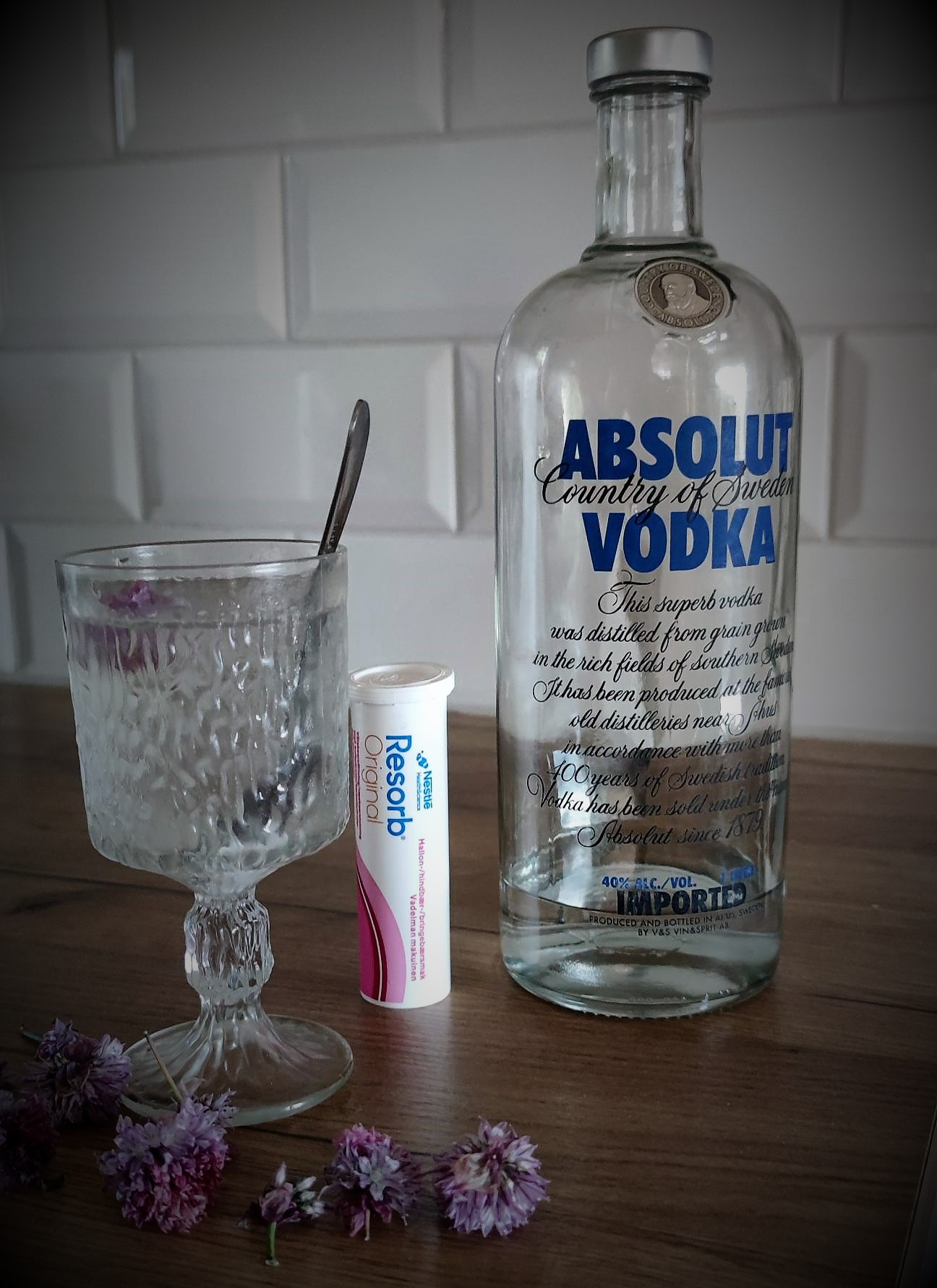[lö:k][i:][grågi:]
The Origin Story of Lökigroggi: A Midsummer Elixir of Resilience
Once upon a time, nestled in the shimmering waters of the Baltic Sea, lay the serene archipelago of Åland.
In the days before electricity and ferries, the people of these islands lived a life dictated by the rhythms of the sea and the seasons.
Among these traditions, none was more anticipated—or more perilous—than the Midsummer feast, a celebration so epic it bordered on the mythical.
The feasting, singing, and dancing were rivaled only by the prodigious consumption of aquavit, snaps, and beer.
But this bacchanalian revelry had its price, for the revelers would wake up parched, groggy, and in dire need of salvation.
It was in this crucible of necessity and creativity that Lökigroggi was born—a drink of such peculiar
composition and surprising efficacy that its legend would transcend generations.
The Fateful Summer of 1723
The story begins during the fabled Midsummer of 1723, a particularly wild and rainless celebration.
Villagers from across Åland had gathered on the largest of the islands for a feast unlike any other.
Among them was a resourceful healer named Birgitta Lökström, known affectionately as "Lök-Birgitta" for her curious obsession with wild chives,
whose purple flowers she swore could cure everything from a sour mood to a stubborn cough.
On the morning after Midsummer Eve, the aftermath was dire.
The revelers were sprawled across the meadows, their faces pale and their spirits broken by hangovers so fierce they were
whispered to be punishment from the Norse gods themselves.
Seeing the suffering of her kin, Birgitta set out to concoct a remedy that would both hydrate and reinvigorate the weary.
The Revelation of the Chive
As Birgitta wandered through the fields, she came upon a patch of chive flowers, their delicate
purple blooms swaying in the summer breeze.
Remembering an old folk rhyme her grandmother used to sing—"Where the chive flower grows,
the weary find repose"—she plucked a handful and crushed them, releasing their sharp, earthy aroma.
Next, she turned to the liquor that had caused the trouble in the first place.
Vodka, distilled by the village brewer, was known for its fiery potency, but Birgitta believed that,
when tempered, it could act as a purifying agent. She diluted it with water from the island’s purest spring,
adding the crushed chive flowers for flavor and what she claimed were "spiritual properties."
But the final ingredient would come from an unexpected source.
The Stranger with the Foreign Pills
As Birgitta was preparing her concoction, a shipwrecked sailor washed ashore.
His name was Eero, a Finnish merchant who had been carrying exotic goods from the mainland.
Among his wares were peculiar tablets called "resorb," made from salts and minerals that he claimed
could restore balance to the body after a hard day's work—or a hard night’s drinking.
Seeing Eero’s condition, Birgitta poured her chive-and-vodka infusion over one of the tablets, watching as it fizzed and dissolved.
She tasted the mixture, her eyes widening as the sharpness of the chives melded with the fiery vodka and the tangy saltiness of the resorb.
It was unlike anything she had ever drunk before—refreshing, restorative, and oddly pleasant.
The First Lökigroggi
Birgitta returned to the Midsummer meadow with her new creation and began offering it to the bedraggled partygoers.
The transformation was immediate. Faces flushed with vitality, dry mouths found relief, and even the grumpiest celebrants began to laugh once more.
Word of Birgitta’s miracle spread, and soon, Lökigroggi became a staple of every Ålandic Midsummer celebration.
The name itself was a tribute to its creator—"Lök" for the chives that defined its character and "groggi," the Swedish word for a mixed drink.
Modern Traditions
To this day, no Ålandic Midsummer celebration is complete without a pitcher of Lökigroggi. The recipe remains simple yet sacred:
* A handful of fresh chive flowers, crushed to release their essence.
* A liberal splash of vodka, enough to remind you of the night before.
* A fizzing resorb tablet, preferably elderflower or lemon-flavored.
Cold, clear water, traditionally drawn from a spring but now often substituted with bottled mineral water.
Lökigroggi is consumed with reverence at the first light of dawn, as the bonfires smolder and the sun begins
its endless summer arc across the sky.
Islanders swear it not only fends off dehydration and hangovers but also
brings good luck for the coming year.
As the legend goes, if you drink Lökigroggi while standing barefoot in dew-covered grass, you'll be immune
to misfortune until the next Midsummer.
Thus, Lökigroggi stands as a testament to the ingenuity and resilience of the Ålandic people — A drink born from necessity,
perfected through tradition, and celebrated as a quirky but beloved part of their heritage. Skål!
